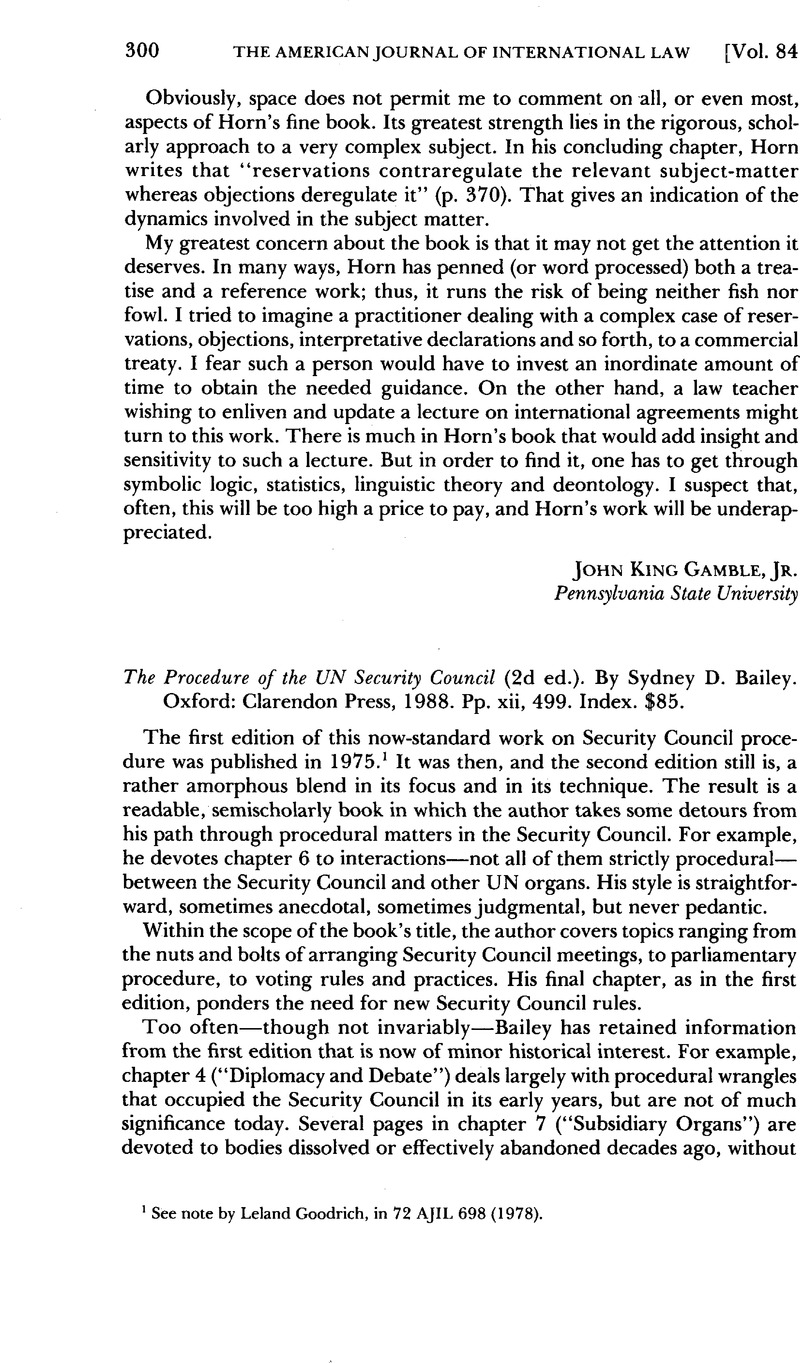No CrossRef data available.
Published online by Cambridge University Press: 27 February 2017

1 See note by Leland Goodrich, in 72 AJIL 698 (1978).
2 See first edition, pp. 107–33. The omission of this section renders rather inaccurate a chapter heading (“The People”) retained in the second edition.
3 Legal Consequences for States of the Continued Presence of South Africa in Namibia (South West Africa) Notwithstanding Security Council Resolution 276 (1970), 1971 ICJ Rep. 16 (Advisory Opinion of June 21).
4 SC Res. 276, 25 UN SCOR Res. & Dec. at 1, UN Doc. S/INF/25 (1970).
5 1971 ICJ Rep. at 52.
6 Anglo-Iranian Oil Co. Case (UK v. Iran), 1951 ICJ Rep. 89 (Interim Protection Order of July 5).
7 It is not clear that the United Kingdom was in fact attempting to use Article 94(2). The United Kingdom proposed three draft resolutions. One, S/2358 (1951), would have called upon Iran to act in conformity with the provisional measures, without expressly invoking Article 94(2). The other two, S/2358/Revs. 1 & 2 (1951), would have called upon Iran to resume negotiations.
8 See Repertoire of the Practice of the Security Council Supp. (1972–1974) at 78, UN Doc. ST/PSCA/1/Add.7 (1979).
9 See L. Gordenker, The UN Secretary-General and the Maintenance of Peace (1967); T. Franck, Nation Against Nation 117–33 (1985); Franck, The Good Offices Function of the UN Secretary-General, in United Nations, Divided World 79 (A. Roberts & B. Kingsbury eds. 1988); Franck, The Role and Future Prospects of the Secretary-General, in The Adaptation of Structures and Methods at the United Nations 81 (Hague Academy Workshop, 1986); Franck, Finding a Voice: How the Secretary-General Makes Himself Heard in the Councils of Nations, in Essays in Honour of Judge Manfred Lachs 481 (J. Makarczyk ed. 1984); A. Rovine, The First Fifty Years: The Secretary-General in World Politics 1920–1970 (1970). Bailey himself has written previously on the UN Secretariat. See S. Bailey, The Secretariat of the United Nations (rev. ed. 1964).